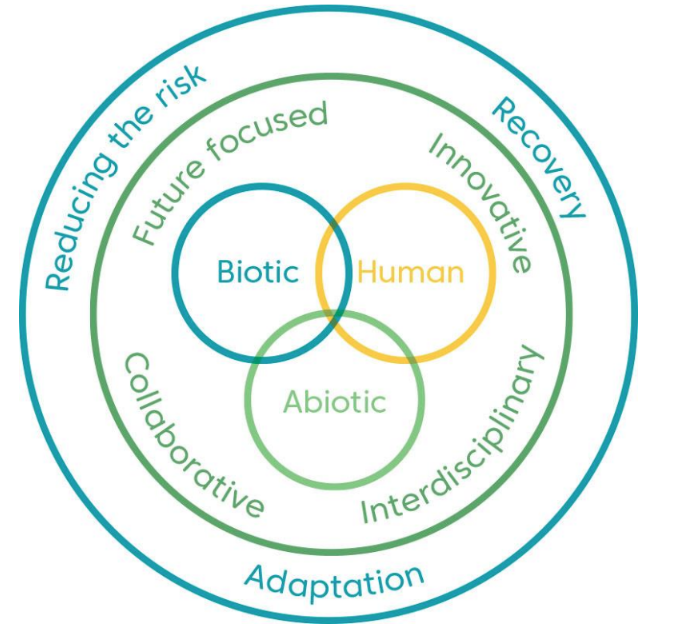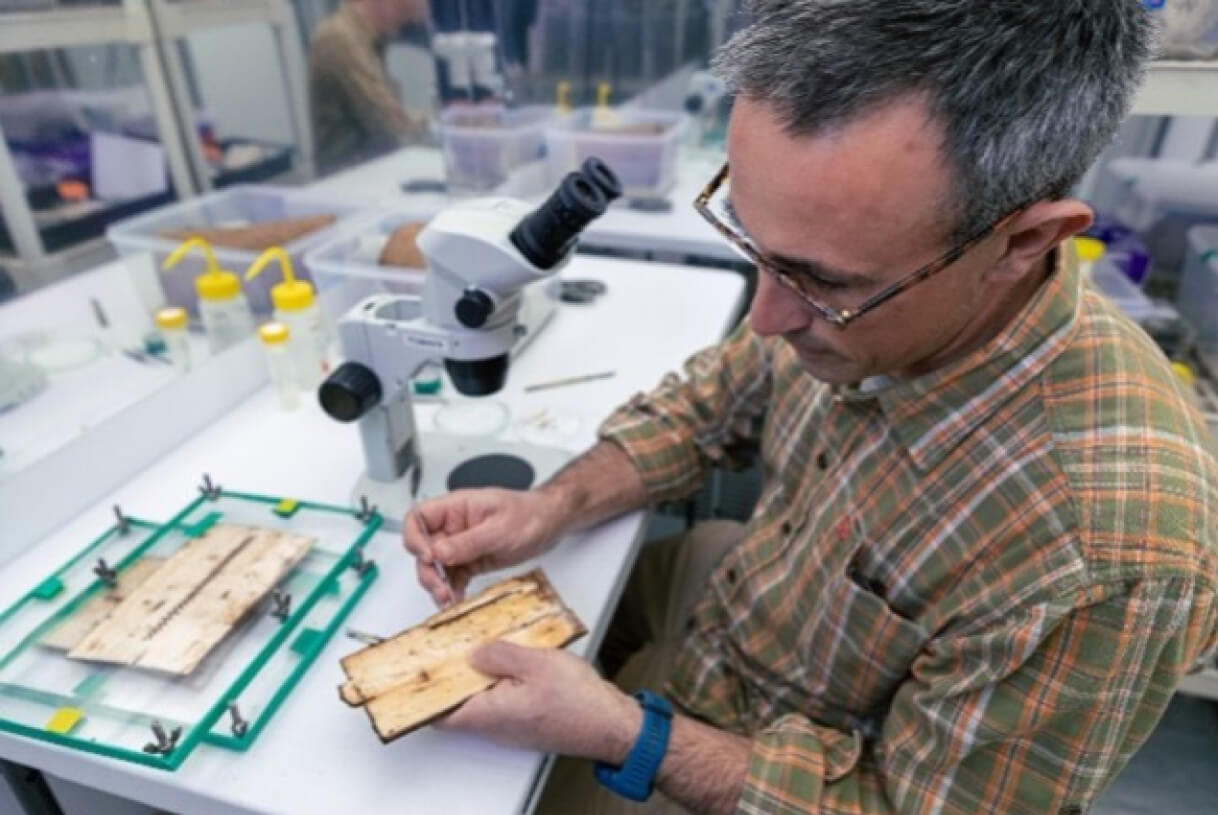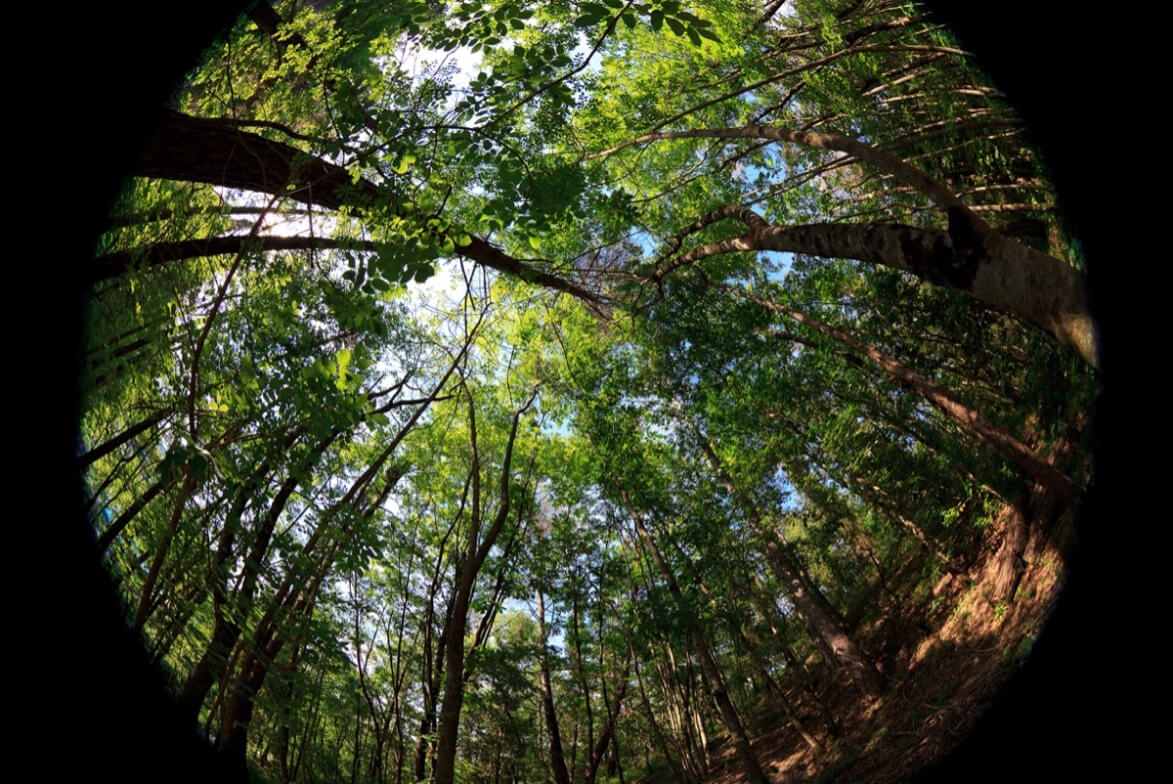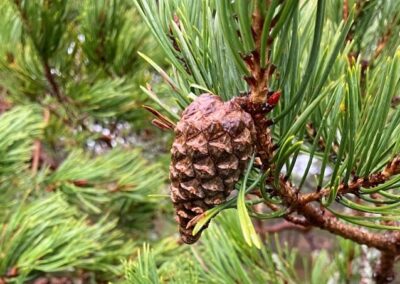Science & Research
Our research programme addresses the individual and cumulative impact of current and future threats to our treescapes, to identify interventions that could increase their resilience.
Threats and opportunities addressed by the Centre for Forest Protection (CFP):
Our research programme addresses the individual and cumulative impact of multiple current and future threats to our treescapes, to identify interventions that could increase their resilience. To do this, the Centre focuses on three types of threats and opportunities. Click on each to learn more:
Biotic threats and opportunities
- Existing, new and emerging tree pests (including mammalian, arthropod and nematode pests) and, pathogens (including bacterial, fungal and viral).
- Opportunities to increase resilience through biotic interventions, understanding the microbiome and diversifying the species we plant for resilience to pests and diseases.
Abiotic threats and opportunities
- Particularly the impacts of climate change, including threats from more extreme weather such as wind, wildfire, drought and floods. The interaction of climate change/weather with other abiotic threats (e.g. pollution, CO2 concentration, temperature and soil degradation) and biotic threats (pests and diseases).
- Opportunities for novel practices to improve resilience under future scenarios and diversifying the species we plant for resilience to climate change.
Socioeconomic threats and opportunities
- Including drivers for the removal or degradation of woodlands and forests and opportunities to ensure that the management of resilient treescapes is socially and economically viable.
Research approaches:
CFP research projects seek to build strong collaborations with a wide range of other research organisations, both in the UK and with international collaborators. We are delivering our research programme via projects which are:
Future-focused
- Contributes to future resilience solutions, considering both threats and opportunities under future environmental, climate, policy, technological and economic scenarios.
- The CFP is focused on reducing the risk of, and facilitating recovery from, future threats, or adaptation to both current and future threats.
- CFP projects proactively seek solutions and grasp opportunities to deal with big issues.
Innovative
- CFP projects deliver innovative solutions to big problems, including through the development of novel methodologies and technologies and novel deployment of existing methodologies and technologies.
Interdisciplinary
- Working across disciplines within natural science, social science and economics.
Collaborative
- Bringing together key expertise across organisations within and outside of the CFP core partnership.
- Working with collaborators in the UK and abroad and considering partnership working in its widest sense, including with non-academic partners.
Research outcomes:
We support research activities to deliver the following outcomes to protect our treescapes:
Reducing the risk
- Reducing the threat or absorbing the impact of risk with no substantial change or loss to the treescape.
Recovery
- Facilitating a suitable response when a threat does occur to allow the treescape to recover wherever possible.
Adaptation
- Driving long-term changes which will strengthen our natural resource and favour the survival of trees, woods and forests and their supporting landscapes to adapt to threats.
These outcomes are based on the Resilience Implementation Framework, which underpins The UK Forestry Standard and supports delivery of the Defra Tree Health Resilience Strategy and the forthcoming Trees and Woodlands Resilience Strategy.
You can find more information about our research projects below:

Schematic representation of the Centre for Forest Protection Research Framework.
Research Projects
Work With Us
The Centre for Forest Protection aims to create a dedicated hub and network of specialists who will work together to shape the Centre's science programme. It will also provide the expertise that can be drawn upon to support a comprehensive response to tackling threats to forests, woodlands and trees – particularly from pests and diseases.

Knowledge Hub
A key priority for the Centre is knowledge exchange and ensuring that research outputs are shaped by stakeholder engagement to increase their relevance and impact. Part of this will be working with stakeholders to create a knowledge hub to promote the sharing of evidence, expertise and best practice that can help promote the resilience of forests and woodlands.

Our Partners
Social media
Explore
Newsletter
Contact
© 2022 Centre for Forest Protection. All rights reserved.


